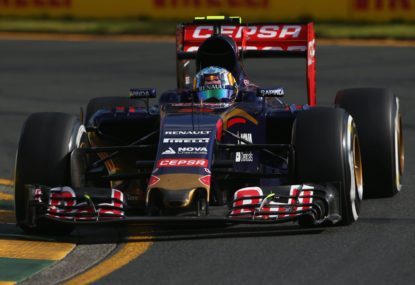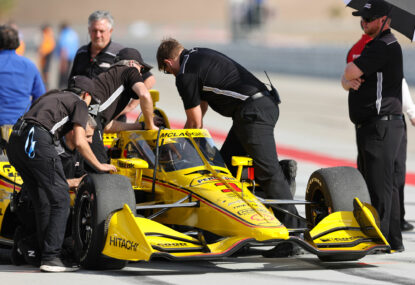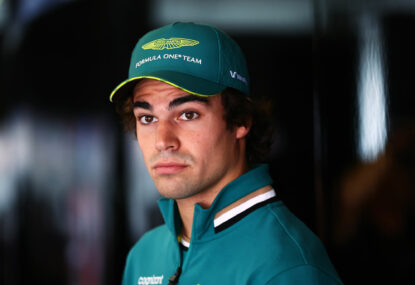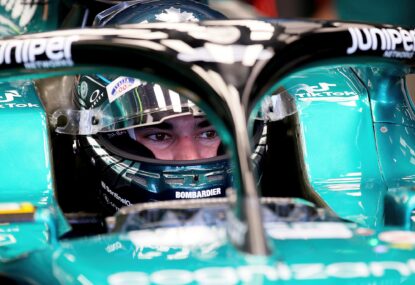Somewhere in the hangover of the Australian Grand Prix, the relationship between Red Bull and Renault boiled over in an ugly way, scalding many in the process.
Renault, Mercedes, and the FIA were all targets for Red Bull’s toys as they were thrown emphatically from the pram, and none were too happy about it.
The French engine manufacturer, a stalwart of Formula One since 1977, barring a brief spell in the 1990s, was obviously most aggrieved.
“Our figures have shown that the lap time deficit between Red Bull and Mercedes in Melbourne was equally split between driveability issues, engine performance and chassis performance,” said Renault F1 chief Cyril Abiteboul.
“It’s therefore the overall package that needs some help and we have been working with the team to move forward.”
Abiteboul stepped it up a notch with the French press, saying, “It’s difficult to have a partner who lies. Adrian [Newey] is a charming man and an engineer without parallel, but he’s spent his life criticising engine partners. He’s too old to change his ways.”
Renault’s frustrations are understandable: its integral part in Red Bull Racing’s success in 2010–13 has been largely overlooked by its customer, and stablemate road car manufacturer Infiniti has usurped its branding on the car.
Mercedes was similarly offended, and the words of Red Bull Racing’s heavies were enough to move Toto Wolff to rage:
“If you try to beat each other and perform at the highest level and then you need equalisation after the first race, you cry out after the first race, that’s not how we’ve done things in the past.
“I think, ‘Just get your f*****g head down, work hard and try to sort it out.”
That Mercedes should feel so let down by Red Bull Racing is similarly fair enough. The famous Silver Arrows believes it is unfair that it should be berated for simply doing a better job than all of its rivals.
The FIA, as is increasingly its way, has remained silent on the matter. There’s no point engaging in a slinging match with one of its teams over a moment of petulance, and no other teams would agree to an emergency change of the regulations just for the sake of closing the gap in any case.
And that is the state of play. Red Bull has threatened to make a decision to scale back its involvement in the sport by the middle of the year should it see, as Adrian Newey so aptly described the team’s woes with its engine supplier, “no light at the end of the tunnel”.
But should Formula One be worried?
The withdrawal of Red Bull would be a devastating blow to the sport. It invests bucket loads of money into Red Bull Racing and Toro Rosso, which means both squads are economically viable and generally fiscally responsible members of world sport.
Furthermore, Red Bull is an incredibly accessible brand – it is, after all, an energy drink, and available at virtually any corner store. As a result, Red Bull has put impressive amounts of money into promoting its involvement in Formula One.
The sport has benefitted from Red Bull’s marketing prowess, and given that Formula One is so loathe to do any sort of self-promotion, losing Red Bull in this capacity could well prove devastating should no-one enter the fray to pick up the slack.
That aside, does Formula One need Red Bull? Does it rely on its involvement to maintain momentum? To use a well-worn example, is Formula One’s relationship with Red Bull as critical as its relationship with that most recognisable of sporting icons, Ferrari?
Uh, no.
Red Bull Racing will never be Ferrari. It will never be a McLaren. Try as it might, it will it never be a Williams. Red Bull may have earned its own category of super sponsor, but it can never be considered in the same league as these genuine racing teams.
Bernie Ecclestone, the teams, and even the FIA have made much ado in years past that car manufacturers make only fickle allies. Though they initially pump seemingly endless cash into performance, their commitment inevitably wavers and collapses, as was the case at the end of the 2000s. When success is not forthcoming, the executives lunge for the eject button. Formula One is treated as a marketing exercise.
Why should Red Bull be considered any differently? After all, the Red Bull brand can’t be counted on to bring any motoring prestige to the sport. Dietrich Mateschitz, whether he has a passion for the sport or not, is involved in Formula One only to sell more cans of drink.
For all its millions of dollars of investment – which, to be clear, are incredibly valuable – Red Bull is as expendable to the sport as the sport obviously is to Red Bull.
Does Red Bull contribute to the sport? Yes. Would Red Bull’s exit hurt? Most certainly. But is there life after Red Bull? Definitely.
And, if you believe the speculative rumours, if Renault bought Toro Rosso and Audi bought Red Bull Racing, would you be disappointed with the trade?




































































































